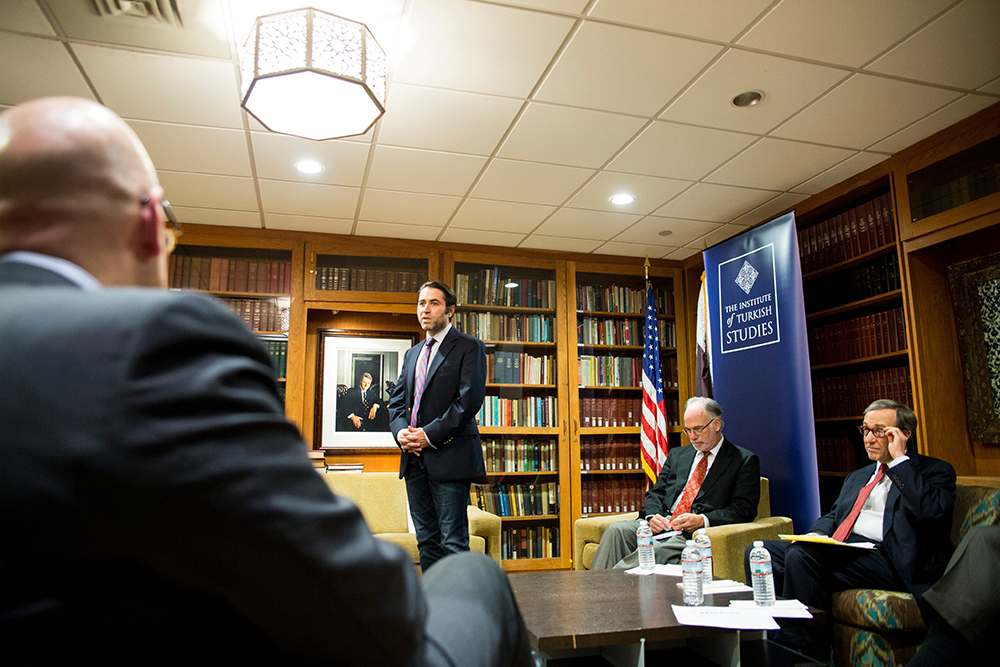As the Institute of Turkish Studies prepares to close this fall due to an inability to secure sustainable funding, students and the organization’s leadership expressed frustration and disappointment over the end of the program’s scholarly work and grants.
The ITS, established in 1983 through a fund by the Republic of Turkey, provides grants to students in order to pursue Turkish studies at U.S. institutions of higher education, according to the institute’s website. In May 2019, the ITS’ board of directors announced plans to close effective Sept. 30, 2020, citing terminated funding from the Turkish government-initiated trust in late 2015 and the institute’s inability to find replacement income.
The institute provided recipients special opportunities to explore Turkish and Ottoman scholarship. The ITS’ closure has upset many academics and may inhibit better cultural understanding of the region, according to Sylvia Onder, a member of the ITS board of governors.
“While the closing of ITS is a loss for Georgetown and for the USA, it is also a great loss for Turkey and the Turkish people,” Onder wrote in an email to The Hoya. “American scholarship about the Republic of Turkey and the Turkic world is essential if Americans are to understand and explore the historical riches, the linguistic particularities, and the cultural and natural wonders of Anatolia and Central Asia.”

Funding provided by the program allowed recipients to study their dissertation topics in greater depth, according to Matthew Sharp, a doctoral student at the University of Pennsylvania studying the final two decades of the Ottoman Empire.
“One of the goals of the ITS is to advance research on Turkey’s history and culture,” Sharp wrote in an email to The Hoya. “In my last year of writing my dissertation, I was no longer funded by my University. So, the ITS writing grant was critical for sustaining me and my family to cover our expenses.”
The closure of the program not only restricts access to the field of study, but also can lead to new financial burdens for students studying related topics, according to Johannes Lohnes, a doctoral student at Cornell University who received a grant from the ITS in the 2019-20 application cycle.
“I would not have been able to conduct my research without the grant. Ottoman documents are expensive to obtain in large quantities, difficult to access, and even more difficult to read,” Lohnes wrote in an email to The Hoya. “For researchers on the US side of the equation this is no small tragedy: ITS offered one of the few remaining lines of dedicated funding for long-term dissertation research in Turkey.”
While the institute plans to cease operations in September, it anticipates that it will continue to grant funds up through the 2020-21 cycle. Sinan Ciddi, executive director of the program, will continue to oversee the distribution of funds until September, according to the online letter announcing the institute’s closure.
In the past, ITS has faced criticism for reportedly advancing the Turkish government’s agenda through academia, including avoiding references to the 1915 Armenian Genocide. After the Turkish government withdrew its funding in 2015, historians and anthropologists speculated that the Institute had grown too independent for the Turkish government’s liking, according to InsideHigherEd.
Despite accusations against the institute, ITS fulfils an important mission as the only nonprofit, private educational foundation dedicated solely to the advancement of Turkish and Ottoman studies in U.S. higher education, according to Onder. The issues currently facing the program have arisen largely from foriegn relations challenges between Turkey and the United States, she wrote.
“This is mostly a political problem based on a disrupted diplomacy between the United States and Turkey,” Onder wrote. “Turkish Studies at Georgetown is one of the strongest programs in the USA, with three (and sometimes four) levels of Turkish taught for twenty years without interruption. We are now the only consortium university in Washington, D.C. with a full Turkish program.”
Since 2014, the Turkish government has shifted toward authoritarian rule, according to The New York Times. Current president Recep Tayyip Erdoğan has led efforts to imprison journalists and limit the power of his political opponents.
The current Turkish political climate makes the ITS’ pending closure more disheartening, according to Lohnes.
“I am not privy to the circumstances surrounding the closure of ITS, but I do know that it couldn’t come at a worse time, for Turkey or for the field,” Lohnes wrote.





















S.Y.Nielsen • Feb 4, 2020 at 5:11 am
This is a shame to close such an important institute. Especially at such a volatile time where knowledge and research is the key. It is sad that no funding can be found to sustain academic scholarship on important issues in the world, where millions are spent on frivolous causes.